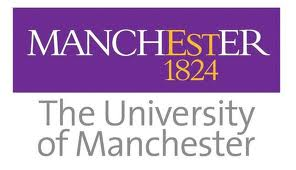

TLDR: Scholarship for a Dual-Award PhD from both the University of Manchester (UK) and the University of Melbourne (Australia) on the topic of Automatic Algorithm Configuration / Hyper-parameter Optimization / AutoML within the context of mathematical optimization.
NOTE: This project is open to International candidates
Supervisors: Manuel López-Ibáñez (University of Manchester); Julia Handl (University of Manchester); Kate Smith-Miles (University of Melbourne), Mario Andrés Muñoz-Acosta (University of Melbourne)

Read about the project (below) first.
Applications are sought from talented and motivated candidates with an academic background in at least one of these fields: Computer Science, Mathematics, Statistics, Operations Research, Data Science, Machine Learning, Industrial / Business Engineering or Business Analytics.
The application deadline will be Midnight (BST) on May 1st, 2024, with a start date in September 2024.
Candidates should submit an online application for the PhD Business & Management, and indicate that they wish to be considered for the Dual-Award Manchester-Melbourne PhD Studentship.
Please ensure you include all required supporting documents at the time of submission, as incomplete applications may not be considered. A Personal Statement is NOT required to be submitted. You should select ‘Supporting Statement is not required for this programme’.
The application must include:
For questions related to your application, contact: HUMS.doctoralacademy.admissions@manchester.ac.uk
Candidates will need to meet the minimum entry requirements of both Universities to be accepted and will be registered at both institutions for the duration of the programme. The entry criteria for the University of Melbourne can be found on their ‘How to Apply’ webpage.
Applicants must hold a Bachelors degree with Honours (to UK standard) of First or Upper Second (2:1) Class, and a Masters degree (to UK standard) with results of Merit at 65% or above (or overseas equivalent).
Applicants whose first language is not English require one of the following:
Many critical problems in logistics, manufacturing, healthcare and other fields are solved by optimisation and machine learning algorithms. Thanks to advances in automatic configuration tools, we are able to automatically tune the parameters of these algorithms for new problems with minimal human effort. Unfortunately, these tools are designed to tune algorithms according to a single criteria and assume that the characteristics of a problem do not change over time. In the real-world, however, the users of such algorithms often face conflicting criteria, such as the time required to solve the problem versus the expected quality of the solution returned by the algorithm. Moreover, it is often the case that similar problems must be solved regularly (e.g. daily) such as in the case of a parcel delivery service, a manufacturing plant processing orders in daily batches or the daily planning of operating theatres in hospitals. In those cases, the characteristics of the daily instances of the problem may evolve over time due to economical, societal and technological changes.
This project aims to extend the capabilities of automatic configuration tools to handle multiple conflicting criteria and adapt to such changes in the problem characteristics. For this purpose, the teams at Manchester and Melbourne will join their expertise in automatic configuration of algorithms and instance space analysis.
The result of this project will be more powerful tools for tuning and deploying the critical algorithms that the modern world relies on, so that they can better adapt to changes in the problems being solved and let users decide the most appropriate trade-off among conflicting criteria.
The goals of this project are to:
The main research questions are:
The PhD candidate will benefit from the combined expertise of the project supervisors, and the embedding into two research environments. Dr Manuel López-Ibáñez is a worldwide expert on the automated configuration of algorithms and Professor Julia Handl is an expert in multi-objective optimisation and machine learning, including for streaming data. The team led by Melbourne Laureate Professor Kate Smith-Miles, will contribute by extending unique tools for Instance Space Analysis to analyse and visualise the relationship between instance features and configuration criteria as well as how a stream of instances evolves over time.
This PhD project will be based at the University of Manchester with a minimum 12-month stay at the University of Melbourne.
The candidate will be enrolled in the PhD program at the Alliance Manchester Business School at the University of Manchester and in the PhD program at the School of Mathematics and Statistics at the University of Melbourne.
See the ad in FindaPhD.
To apply see the details above
For questions related to your application, contact the Faculty of Humanities’ Doctoral Academy (HUMS.doctoralacademy.admissions@manchester.ac.uk)
For questions about the topic, please contact Dr Manuel López-Ibáñez (manuel.lopez-ibanez@manchester.ac.uk) with an up-to-date CV including any publication profile.
Last updated: 12 April 2024